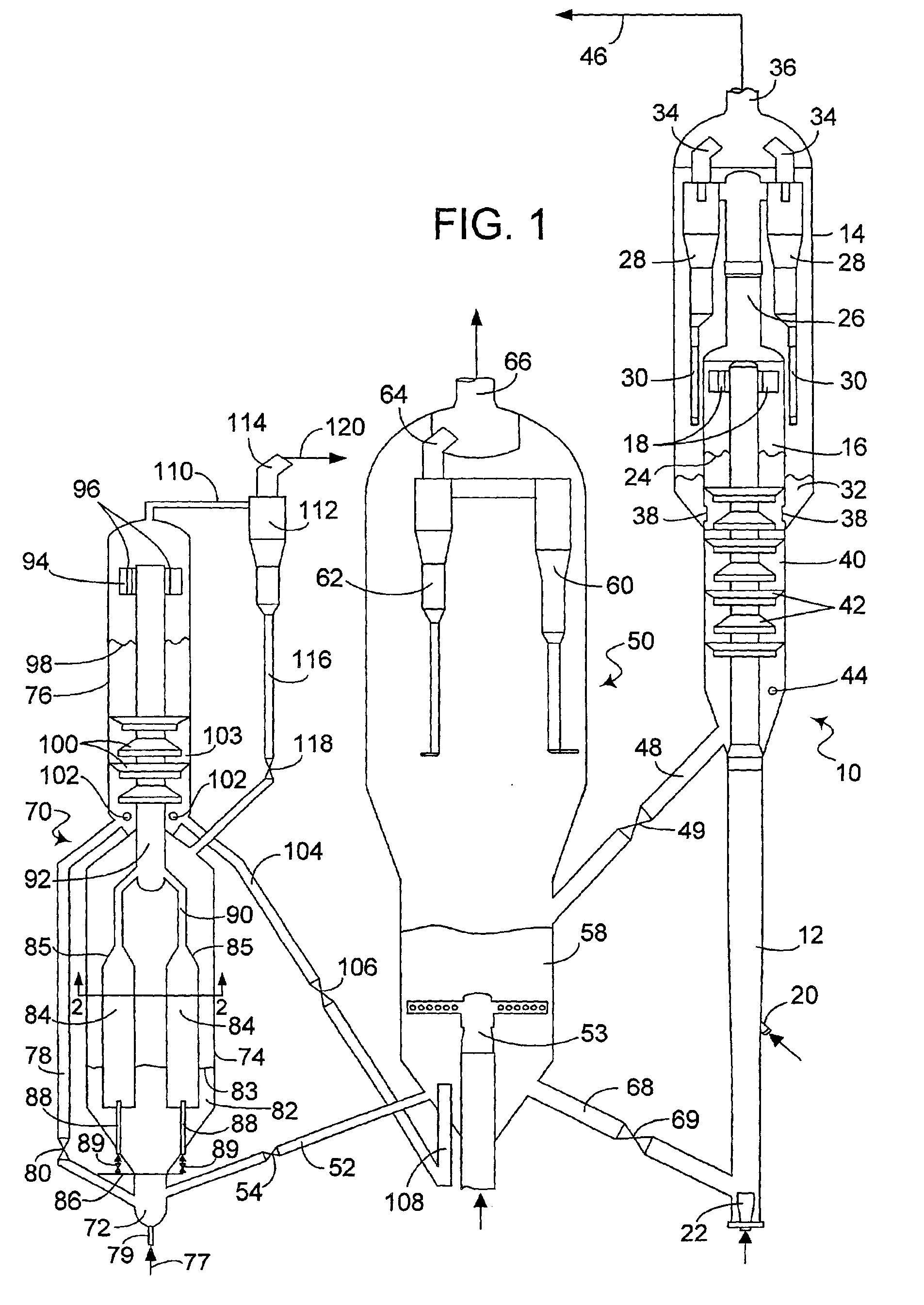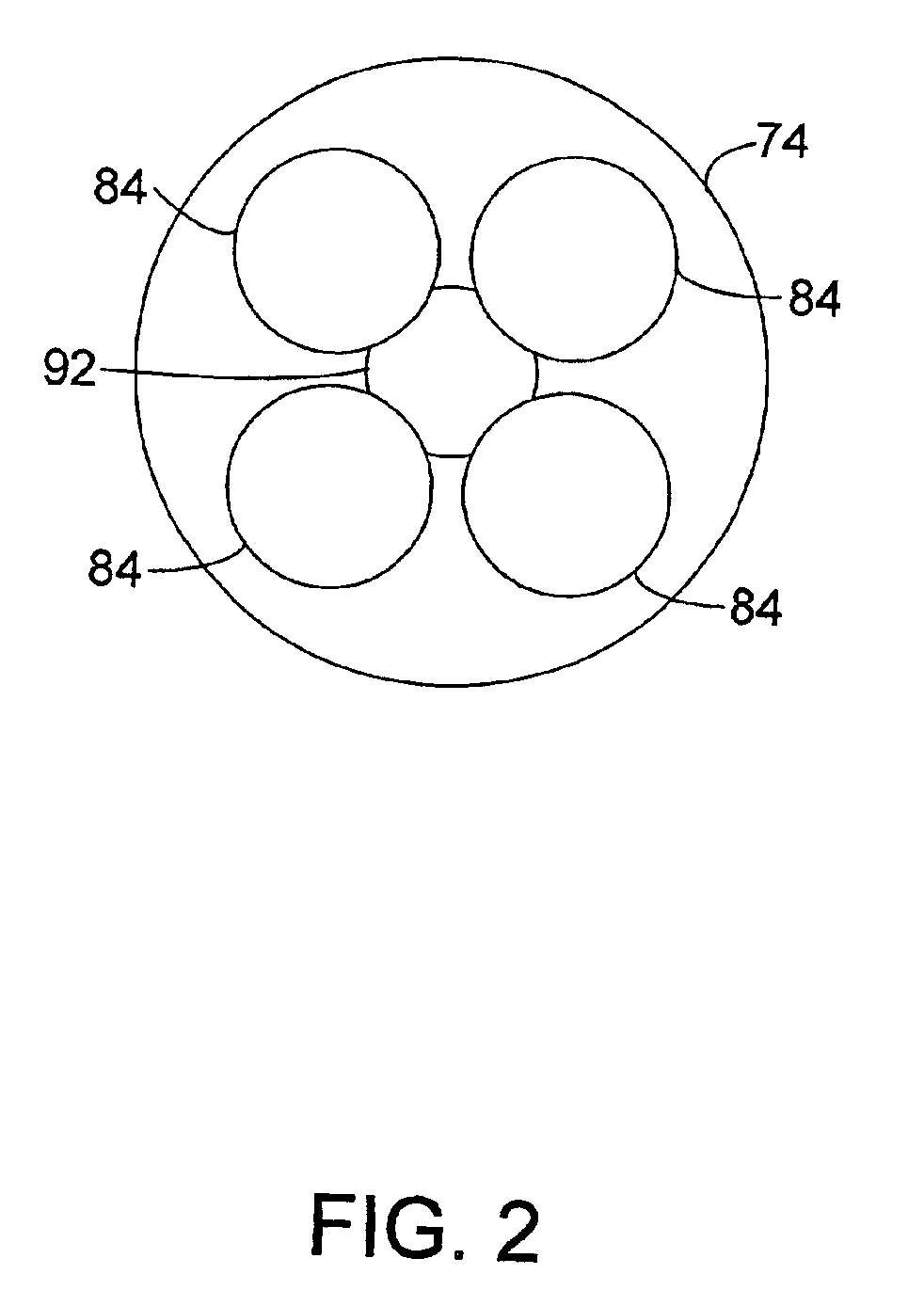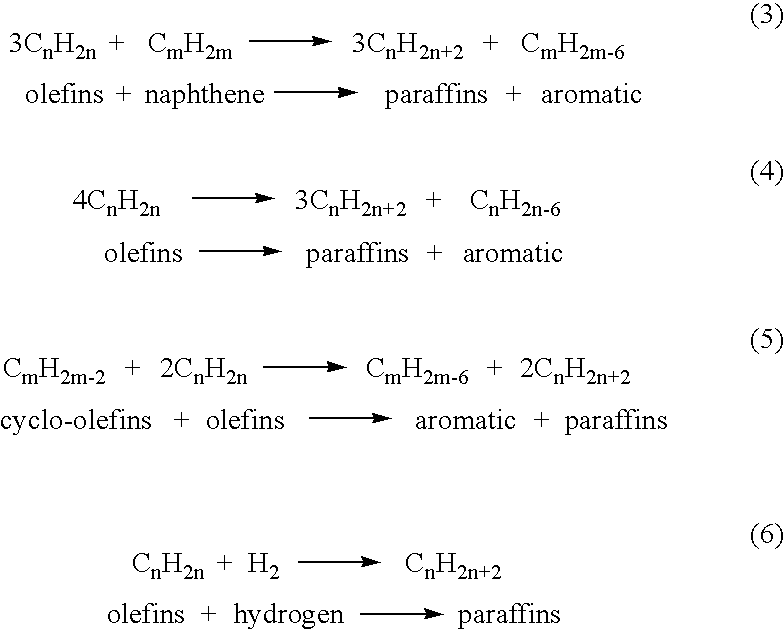Process and apparatus for upgrading FCC product with additional reactor with thorough mixing
a technology of catalytic cracking and process, applied in the direction of hydrocarbon oil treatment, chemical apparatus and processes, chemical/physical processes, etc., can solve the problems of less effectiveness compared to flow conditions that may descend into turbulent bed regimes, and achieve controlled catalytic cracking reactions, the effect of promoting hydrogen transfer reactions
- Summary
- Abstract
- Description
- Claims
- Application Information
AI Technical Summary
Benefits of technology
Problems solved by technology
Method used
Image
Examples
Embodiment Construction
We have found that when reacting hydrocarbons produced by an FCC process in a secondary reactor they can potentially crack down to dry gas and LPG which are less valuable than naphtha in many regions. Reduced catalyst temperature will suppress thermal cracking of the naphtha olefins to dry gas and LPG which allows for higher overall naphtha yields. In one embodiment, the present invention recycles spent catalyst to the secondary reactor to be recontacted with feed. The recycled spent catalyst mixes with regenerated catalyst from a regenerator to lower the overall mixed catalyst temperature.
Mixing the recycled spent catalyst with regenerated catalyst is a preferred method of cooling catalyst compared to use of an indirect heat exchange catalyst cooler, which operates to withdraw heat from the system that must be replaced by the generation and burning of more coke. Even if heat is conserved by heating feed to a reactor by indirect heat exchange with hot spent catalyst in the catalyst ...
PUM
| Property | Measurement | Unit |
|---|---|---|
| superficial vapor velocity | aaaaa | aaaaa |
| superficial vapor velocity | aaaaa | aaaaa |
| density | aaaaa | aaaaa |
Abstract
Description
Claims
Application Information
 Login to View More
Login to View More - R&D
- Intellectual Property
- Life Sciences
- Materials
- Tech Scout
- Unparalleled Data Quality
- Higher Quality Content
- 60% Fewer Hallucinations
Browse by: Latest US Patents, China's latest patents, Technical Efficacy Thesaurus, Application Domain, Technology Topic, Popular Technical Reports.
© 2025 PatSnap. All rights reserved.Legal|Privacy policy|Modern Slavery Act Transparency Statement|Sitemap|About US| Contact US: help@patsnap.com



